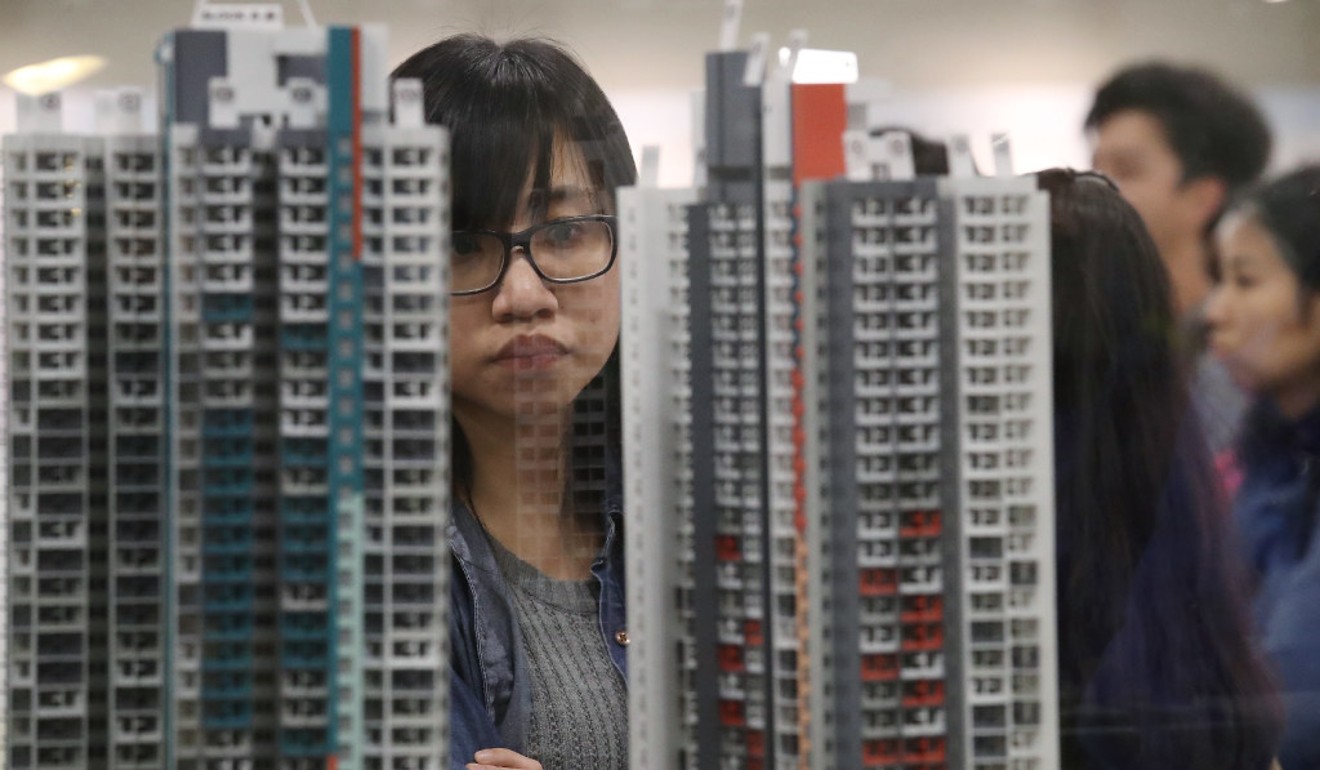
Firm hopes ‘plug and play’ homes can help ease Hong Kong’s housing crisis
Prefabricated aluminium modules could be used as alternatives to container homes, their maker says, but experts note that the bigger issue for the city is a shortage of land
Versatile, lightweight and a “plug and play” design: that is how one company is pitching its product to help relieve Hong Kong’s chronic housing crisis.
AluHouse’s modular, prefabricated aluminium buildings are an ideal “temporary housing” solution for people who are in between flats or do not yet qualify for public housing, according to the company’s managing director, Eric Kwong.
“Compared to other products, these can be easily configured for different needs and are movable,” Kwong said. “They are stronger, eco-friendly and use aluminium, which is recyclable.”
Soaring property prices have made Hong Kong one of the world’s most unaffordable cities to live in. Prices for small dwellings in the city increased by more than 20 per cent in the last four quarters, according to a recent UBS report, and in real terms they are close to three times higher than in 2003, it noted.
Although the government exceeded its annual target of supplying 18,000 new private homes last month, UBS said the outlook remains dim for those hoping to enter the market.
“Unabated investor demand and firmly entrenched optimistic expectations limit downside in the short term, despite the city featuring the worst housing affordability of all financial centres,” it said.
Adding to the problem, the government is struggling to keep up in providing public housing. As of June this year, 150,200 families and elderly people were waiting for public housing, with the average wait some 4.7 years, according to government statistics.
To date, the conventional logic to address the housing shortage has been to build upwards, but that race has left scarce flat land for building development – something Kwong hopes his solution can overcome because of its modular design and easy installation.

It is not the first time prefabricated homes have been suggested as a solution to Hong Kong’s housing crisis. Tiny flats, capsules and even boats have all been put forward in the past. Compared to the cost of container homes, Kwong said his prefab ones “are about the same price.”
Although welcoming novel ideas to the housing crisis, experts said the city’s challenge is one of land supply, not housing construction.
“As a temporary solution to give homes to the needy, it is better than nothing,” said Chau Kwong Wing, professor of real estate and construction at the University of Hong Kong.
“This can supply a limited [number] of units,” he said. “There is also issue of finding land to place these units. The housing problem we are facing is not about housing construction but shortage of developable land.”
The government has taken note. Since becoming Hong Kong’s chief executive in July, Carrie Lam Cheng Yuet-ngor has said that fixing the housing shortage will be a key focus for her government, with the “starter homes” proposal a key part of that plan.
Lam said the scheme, which aims to help young families who cannot afford private housing but earn too much to qualify for public flat rentals, will target those whose income exceeds HK$52,000 (US$6,660) a month and who have not been able to purchase any property before.
The scheme is expected to feature heavily in Lam’s maiden policy address on Wednesday.
In another sign of the government’s willingness to address the issue, Bernard Chan, chairman of the Hong Kong Council of Social Service, said last month that short-term and medium-term housing solutions are becoming increasingly important.
It is people who fall into the group targeted by Lam that Kwong hopes to help, by providing temporary housing as an alternative in the face of a limited housing supply.
Kwong said the government has been receptive in his discussions with them.
“They are very positive about these temporary housing ideas,” he said. “In the next two days, we hope they will mention something about temporary housing.”
For both container homes and prefabricated modules, their limitations are likely to be practical. Hong Kong currently has no official guidelines for temporary housing on this scale, though the Buildings Department website says that approval and consent are required for erecting prefabricated structures including mobile homes.


